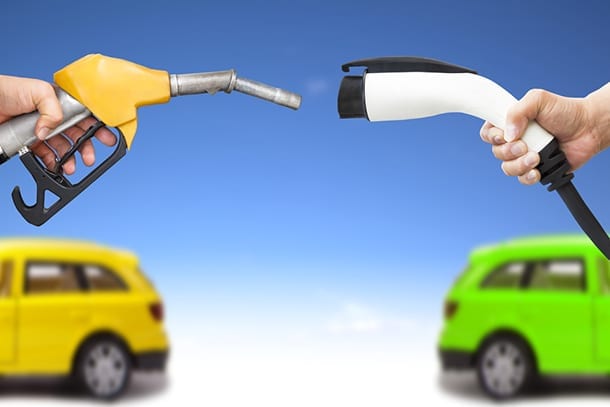
5 Common Misconceptions about Hybrids
With fuel prices on the rise and the impacts of climate change increasingly evident, it is no wonder that the popularity of hybrid vehicles is on the rise. Technology hasn’t only paved the way to help people save money on a car loan, with a hybrid car, gadgetry is also helping people save money on the road. Despite hybrid vehicles being available to customers for over 15 years, there are still a number of myths surrounding this technology. We have put together a list of the five most common misconceptions about hybrids to set the record straight.
1. Hybrids are boring
This is far from the truth. In fact, Hybrids offer a unique “game” like driving experience with a range of engaging and vibrant technologies available to the driver in many vehicles. For example, the Honda Insight rewards eco-friendly driving with leaf points until specific goals are reached and the driver wins a trophy. Other vehicles on the market make use of multi-information display screens that provide the driver with visual feedback on performance such as colour coded engine use, average L/100km, trip costs and eco savings. Many drivers can’t help but feel compelled to beat the figures every time they drive much like beating a high score on a video game.
If this doesn’t sound like enough to stay interested, the range of hybrid options is expanding exponentially with more and more sporty and exciting models being released. One of the top performers in the Australian market is the Honda CR-Z which is even available as a manual and features sporty styling and nimble handling.
2. Hybrids are slow
Admittedly when hybrids were first released to the market, fuel economy trumped any need for power resulting in cars that were fairly sluggish. However advances in technology have allowed hybrid performance to improve so significantly that even some Formula 1 race cars boast hybrid engines! For most hybrid cars on the market, the assistance from the torque-rich electric motor to accelerate results in performance that is the same as or better than their non-hybrid counterparts.
3. Energy used to build a hybrid cancels any gains in fuel efficiency
The purchase of a hybrid vehicle is often motivated by a desire to have a positive impact on the environment. However some critics have argued that the amount of energy required in building a hybrid and the use of rare earth elements in the specialised battery mean that a hybrid has a greater impact on the environment than a regular fuel powered car. An independent enquiry conducted in the US found that the production of a hybrid vehicle does require more energy and result in the release of more greenhouse gases during manufacturing. However, over the life of the car, this is outweighed by the reduced amount of greenhouse gases emitted during regular driving and improved fuel efficiency. All things considered, the hybrid vehicle is the greener choice.
4. Hybrids are expensive
There has previously been a significant price difference between the hybrid and non-hybrid models. However as the popularity of hybrids has increased resulting in increased production, the costs of manufacturing have significantly reduced over time. In the current market, the average price difference is typically between $3000 – $5000 and this figure will continue to fall as more hybrids become available. It is also far easier to find a used hybrid vehicle now, which makes a hybrid an affordable option for more people. There are also savings to be made on stamp duty (in some states) and the long term difference in fuel efficiency cancels out the initial differences in outlay. As hybrids are usually packed with cutting edge technology, they tend to hold their value well and have higher resale than other vehicles.
5. Hybrid batteries are expensive and difficult to replace
Exact figures for replacement hybrid batteries are hard to come by however are estimated at $3000 new and $1000 if they happen to be saved from a wreckers. And yes, that is expensive! However, what is unique to the hybrid battery is that they are made to last for the life of the vehicle and come with a minimum 8 year warranty. In terms of distance, the hybrid battery is said to last at least 250,000 kilometres.
So if you’re looking for an affordable, fuel efficient vehicle but still wanting to do your part for the environment, a hybrid is an excellent choice. After all, surely the two million people who own them must be onto something.
If you’d like to find out more about applying for a car loan to upgrade your current vehicle to a hybrid, contact one of our friendly staff.

